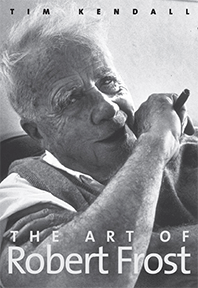
“I think for me, Phi Beta Kappa membership has been wonderful because
it’s a membership in a group that values learning and breadth of learning.
We cannot emphasize that enough in today’s society.”
—Dorie Clark
By Christopher Sanchez
Dorie Clark entered college at the age of fourteen due to an early start program at Mary Baldwin College in Virginia. In her junior year, she transferred to Smith College, where she graduated Phi Beta Kappa at the age of eighteen as part of the class of 1997. She recalls, “I was so excited and proud to graduate with Phi Beta Kappa. My father was also a Phi Beta Kappa graduate, so I have a little pouch where I keep my key and his together.”
Clark earned a bachelor’s degree in philosophy; she was attracted to philosophy because she was interested in human behavior. Specifically, she was interested in what motivated people and how people sought out their place in the world. Inspired to continue her education, she attended Harvard Divinity School and graduated with a master’s in theological studies two years later. Clark chose to study theology because she wanted a deeper understanding of the context in which the great philosophical thinkers derived their ideas. She was also interested in the intersection between politics and religion, and how that played out in contemporary life.
Since graduating from Harvard, Clark has worked as a journalist, a presidential campaign spokesperson, a non-profit executive, and as a writer and director of a documentary film called The Work of 1000 (2010). Eventually, she established her own marketing consulting business, Clark Strategic Communications, and has had a long list of notable clients including Google, Yale University, and the World Bank. When asked what attracted her specifically to the field of business, she replied:
“I think that in our modern society, the place where people spend most of their time and energy when it comes to who they are and what they are accomplishing in the world is the realm of business. It’s the place where we make meaning for ourselves and it was very appealing to me, the idea that I could help people make career transitions better, or position themselves for success better in their companies.”
An adjunct professor of business administration at Duke University’s Fuqua School of Business, Clark is fulfilling four “pillars” of her vocation: consulting, writing, public speaking, and teaching. She is a frequent contributor to the Harvard Business Review, Forbes, and the American Management Association’s publications. She is also a columnist for Mint, India’s second-largest business newspaper.
Clark’s newly released book Reinventing You: Define Your Brand, Imagine Your Future (Harvard Business Review Press, 2013) aims to help people better transition from one career to another or re-position themselves to move up in their company. It was originally inspired by her own professional trajectory and the many career iterations she had been through. Clark had a number of different careers and knows that more and more people recognize that they are going to have a lot of careers or they are going to work at a lot of different companies over the course of their professional lives. She explains:
“Because of that, every time we shift to something new, we have to reinvent ourselves. We have to take stock of our reputation and ask whether it is reflecting what we want it to be. Going back to the importance of a liberal arts education, I feel fortunate that the schooling that I had allowed me to be flexible in a variety of different disciplines. Whether it is filmmaking, journalism, or consulting, those are all things that derived from the baseline skills I was able to pick up as a liberal arts student.”
To Clark, a liberal arts education is a key advantage in the contemporary business world, and in the current, disruptive economy the number one skill that corporate leaders look for in their employees is adaptability and flexibility. Clark explains the advantages of a liberal arts education as follows:
“You cannot have that [adaptability and flexibility] if your entire life, you have been training in a narrow band for one particular career. Having a liberal arts background gives you the ability to come across different types of knowledge, different ways of thinking, different ways of solving problems, and those are the baseline skills that enable you to adapt and move into new directions more seamlessly, which is required of all of us in the current economy.”
She also believes that a liberal arts education helps people in their careers because it helps them learn how to express their ideas clearly and establish an understandable narrative. In the end, Dorie Clark expressed what motivated her and her hopes for the future:
“Because most people spend so much time of their life, some many of their waking hours, at work focusing on their careers, it is a critically important part of their lives. I am motivated because I want to help people fulfill themselves and their potential. You cannot do that if you are stuck in a job you hate, a professional path that does not make you happy, or where you feel you cannot make a full contribution. So my hope for Reinventing You is that people will read it and will see a framework they can follow and stories, case studies that will inspire them to be able to make changes in their lives that will help them be happier, more fulfilled, and better able to help contribute to the world.”
Christopher Sanchez is a junior at the University of California, Riverside, majoring in sociology. The University of California, Riverside is home to the Iota of California chapter of Phi Beta Kappa.




